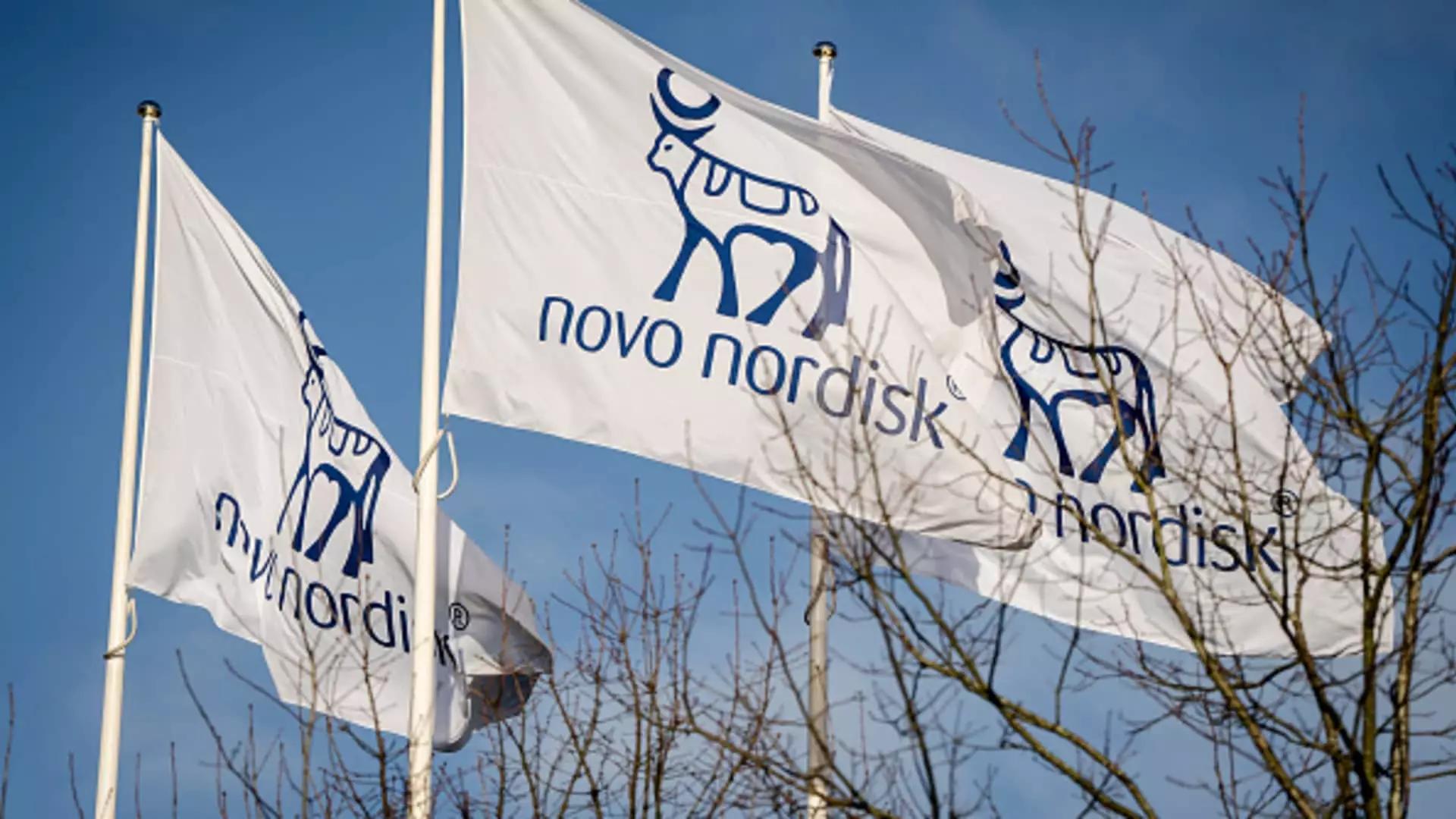In an age where chronic diseases like diabetes and heart conditions plague millions, Novo Nordisk’s recent announcement about its diabetes pill, Rybelsus, is nothing short of revolutionary. The clinical trial presented at the American College of Cardiology’s Annual Scientific Session clinches a crucial milestone: it demonstrates a 14% reduction in the risk of cardiovascular-related death, heart attacks, and strokes for patients living with both diabetes and established heart disease. The average duration of this trial was four years, a notable period that underscores the integrity and reliability of the findings.
With over 9,600 participants over the age of 50, this late-stage trial provided substantial evidence that Rybelsus could alter the landscape of diabetes treatment. The most enticing aspect is not only its efficacy in diabetes management but also its potential to seamlessly integrate into the cardiovascular care of patients. This is a shift from merely controlling blood sugar to actively promoting heart health. It speaks volumes about the future direction of diabetes medications.
The Injectable Dilemma: Rybelsus vs. Ozempic
Novo Nordisk’s Rybelsus is taking the baton from its predecessor, Ozempic, which is delivered via injection. The very fact that Rybelsus is an oral medication is significant; many patients recoil at the thought of needles, and this aversion can deter them from effective diabetes management. Stephen Gough, Novo Nordisk’s global chief medical officer, emphasized this point, shedding light on the need for a more user-friendly option. The choice between injections and oral medications can foster a collaborative relationship between doctors and patients, empowering individuals to participate in their healthcare decisions actively.
In the wake of Rybelsus’s new findings, the competitive landscape among drug manufacturers intensifies. Other companies, including Eli Lilly, are similarly exploring oral GLP-1 medications for various health issues. As the race heats up, the vast implications of these findings could shape treatment protocols for years to come, potentially forcing rival entities to rethink their strategies in drug development.
Groundbreaking Data and Cardiovascular Insights
The trial’s detailed analysis reveals that the pill overwhelmingly lowers the risks of non-fatal heart attacks and strokes—by 26% and 12%, respectively. It is vital to recognize that these benefits are not merely statistical footnotes; they represent life-altering outcomes for patients who often grapple with debilitating complications. The data aligns with previous studies on injectable GLP-1 medications, further validating the theory that mimicking gut hormones can induce a cascade of favorable health outcomes.
For patients, the reduction of cardiovascular incidents is even more significant than the management of diabetes alone. Imagine navigating life without the looming specter of a heart attack or stroke, a freedom that Rybelsus can offer. Yet, it is equally important to note that the magnitude of benefit observed was consistent across all demographics, spanning various age groups and health backgrounds. This consistency adds layers of credibility to the findings and enhances their applicability in real-world contexts.
Addressing Concerns: Side Effects and Compliance
As with any medication, side effects are a necessary consideration. In Rybelsus’s case, the common adverse reactions were gastrointestinal disturbances, akin to those noted with Ozempic, including nausea, diarrhea, and constipation. However, what stands out in this study is that these mild disruptions rarely discouraged patients from continuing the treatment. This raises an important question about adherence to medication in chronic disease management.
Given that Rybelsus requires consumption on an empty stomach 30 minutes prior to breakfast, meal timing introduces a layer of complexity. Yet, successful compliance during the trial indicates that patients can indeed make manageable adjustments to their daily routines. The strength of the trial’s findings rests on the tangible benefits and patient experiences that can foster a sense of hope in healthcare.
Looking Ahead: The Future of Diabetes Treatments
With Novo Nordisk seeking expanded regulatory approval for Rybelsus to encompass cardiovascular risk reduction, the stakes are high. Should it succeed, this could pave the way for more inclusive and holistic diabetes treatment protocols. The focus is shifting from simply targeting blood glucose levels to broadening the horizon to encompass cardiovascular health.
In a world where healthcare innovations can take decades to mature, the rapid emergence of solutions like Rybelsus demonstrates a significant leap forward. For millions grappling with diabetes and heart disease, the hope that comes with such advancements cannot be understated. The combination of improved health outcomes and ease of administration makes Rybelsus a beacon of promise in modern medicine—a promise that should not only excite patients but also inspire continuous innovation in the realm of chronic disease management.

